Hungry for help: refugees in Kenya feel the effects of recent food cuts
KAKUMA REFUGEE CAMP, Kenya, January 9 (UNHCR) – Nyachot squints up at the midday sun above Kakuma Camp as she stirs the daily meal for her family. Before last November, the 34-year-old South Sudanese refugee could cook twice a day. But when the World Food Programme cut rations by 50 per cent that month, she feared for her children’s future.
“The food does not even last the two weeks that it should,” Nyachot told UNHCR visitors, turning to gaze at her baby son. Like thousands of other women at this camp in north-west Kenya, she relies completely on the rations she receives, in the absence of any other source of income. Full rations were later resumed on January 1, but the situation remains serious and fresh funding is needed to avert the risk of further cuts in the future.
Nyachot fled South Sudan in February last year, after fighting intensified between government forces and rebels. Desperate to save her children, she embarked upon an arduous weeklong journey that took her from her home in Maiwat, Upper Nile state to Nadapal, the border entry point to Kenya.
Her eyes filled with tears as she recalled the trauma. “I travelled by boat with about 40 other people for five long days to Juba and then took a bus from there to Nadapal,” she said. “My children were hungry and thirsty.”
When they finally arrived in Nadapal, UNHCR officials and other humanitarian agencies were there to greet them with energy biscuits and water. Later, at Kakuma’s reception centre, they received hot meals, sleeping bags and a place to sleep, before being transferred to Kakuma 4, the new settlement area for South Sudanese arrivals.
For Nyachot, finding refuge in Kakuma and receiving food assistance was a huge relief. Non-food items, such as blankets, cooking utensils, an energy stove and jerry cans, were also supplied and helped her family settle into their new home. But with the food ration cuts in November, Nyachot’s concern quickly began to grow.
In one of the nearby mud houses, Stephen and Gawar shared similar worries. They fled Pangak in South Sudan’s Jonglei state and, like Nyachot, sought refuge in Kakuma. “The situation is very bad,” observed Stephen, interviewed before full rations were resumed last week. “We eat once a day and the food can get finished after five days. Some of our people are even thinking of going back home. It is not an ideal solution, but people are desperate.”
Nyagai, their 36-year-old neighbour, concurred. “Once the rations run out, I survive by begging for food from my neighbours,” she says. “It is a shame to do so but what option do I have?”
Her friend, Nyapel, smiled sadly when she revealed that she could not breastfeed her 11-month-old son due to a medical condition. “I have to sell part of my meagre rations so as to buy milk for him. If I don’t this, then my son will not survive.”
After the ration cuts took effect in November, concerted efforts were made by World Food Programme to raise additional funding and restore full rations – and this was possible at the start of the month. But the funding situation remains uncertain and WFP and UNHCR have issued joint appeals to donors for help.
Meanwhile, UNHCR and partner NGOs continued to engage with refugees through their community leaders to assure them of continued support during November and December. These efforts were a result of the recent joint Inter-Agency Regional Appeal for the South Sudan Emergency Response.
Although refugees had been assured that this was a temporary situation, they remain concerned. “If the food cuts continue, many people will suffer, especially the elderly, the women and children,” said Gawar. Stephen believed that their hope lies with UNHCR.
As she turned back to her cooking, a glimmer of hope flickered in Nyachot’s eyes. She, at least, believed that things would get better; if not for her then at least for her children.
Page 9 of 18
-

UNHCR Special Envoy for the Horn of Africa motivates youth desperate for higher education in Dadaab
18 Oct 2018Ambassador Affey meets Somali refugee youth, to encourage and give them hope of a better future
-
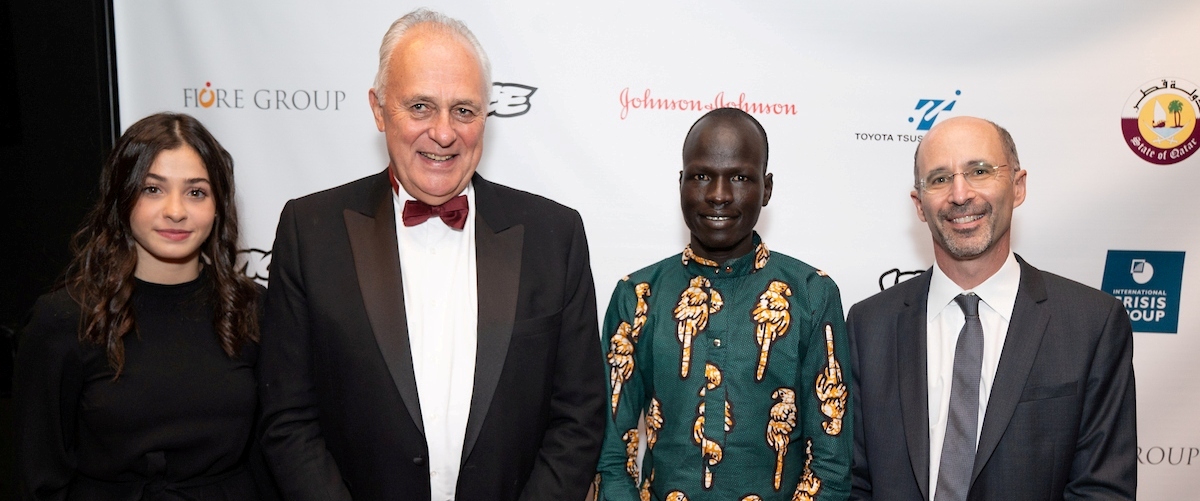
Refugee athletes from Kenya speak at global sports forums
10 Oct 2018“Being selected to receive the award on behalf of other refugee team members is a great honor”
-
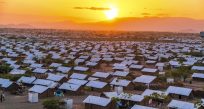
UNHCR convenes two-day workshop to discuss the new approach towards responding to refugee crises
21 Sep 2018The new global approach lays out a vision for a more comprehensive response to refugee crises.
-
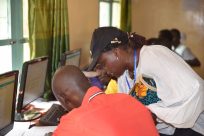
Award-winning technologist inspires girls to learn coding
12 Aug 2018Mariéme Jamme, who received no education until she was 16, is now a technology entrepreneur with a mission to train young women.
-

Refugee Athletes from Kenya impress at African Athletics Championships in Nigeria
12 Aug 2018Asaba comes hot on the heels of the team’s commendable performance at the World U18 Athletics Championships in Tampere, Finland.
-

Kalobeyei Health Centre providing vital health support to refugee and host communities
26 Jul 2018The Kalobeyei ‘Super’ Health Centre provides services to about 38,000 residents, both refugees and host communities.
-
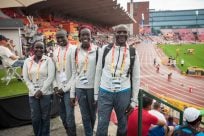
Refugee athletes from Kenya compete at world under-20s athletics championship in Finland
13 Jul 2018Refugee runners, originally from South Sudan, travelled to Tampere, Finland, to compete against young elite athletes from nearly 100 nations.
-
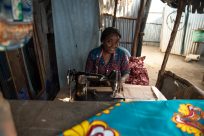
New study reveals private sector investment opportunities, that build self-reliance and empower refugees in Kakuma Camp, Kenya
4 May 2018“We need to change the mindset that refugees are sitting at the camp, doing nothing but receiving assistance. Many of them are, in fact, running businesses and creating jobs for others.”
-
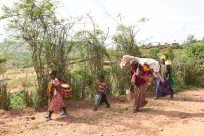
Nearly 10,000 Ethiopians seek asylum in Moyale, Kenya following violence back home
19 Mar 2018“I was really scared, so I decided to cross the border with my family to Kenya for safety”
-
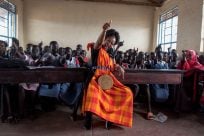
Popular South African actress and model Nomzamo Mbatha visits Kenya in support of refugees
5 Mar 2018“I believe making a personal connection is key to fully championing the plight of refugees. I have to speak and take action not just from a place of understanding, but of experience as well.”
